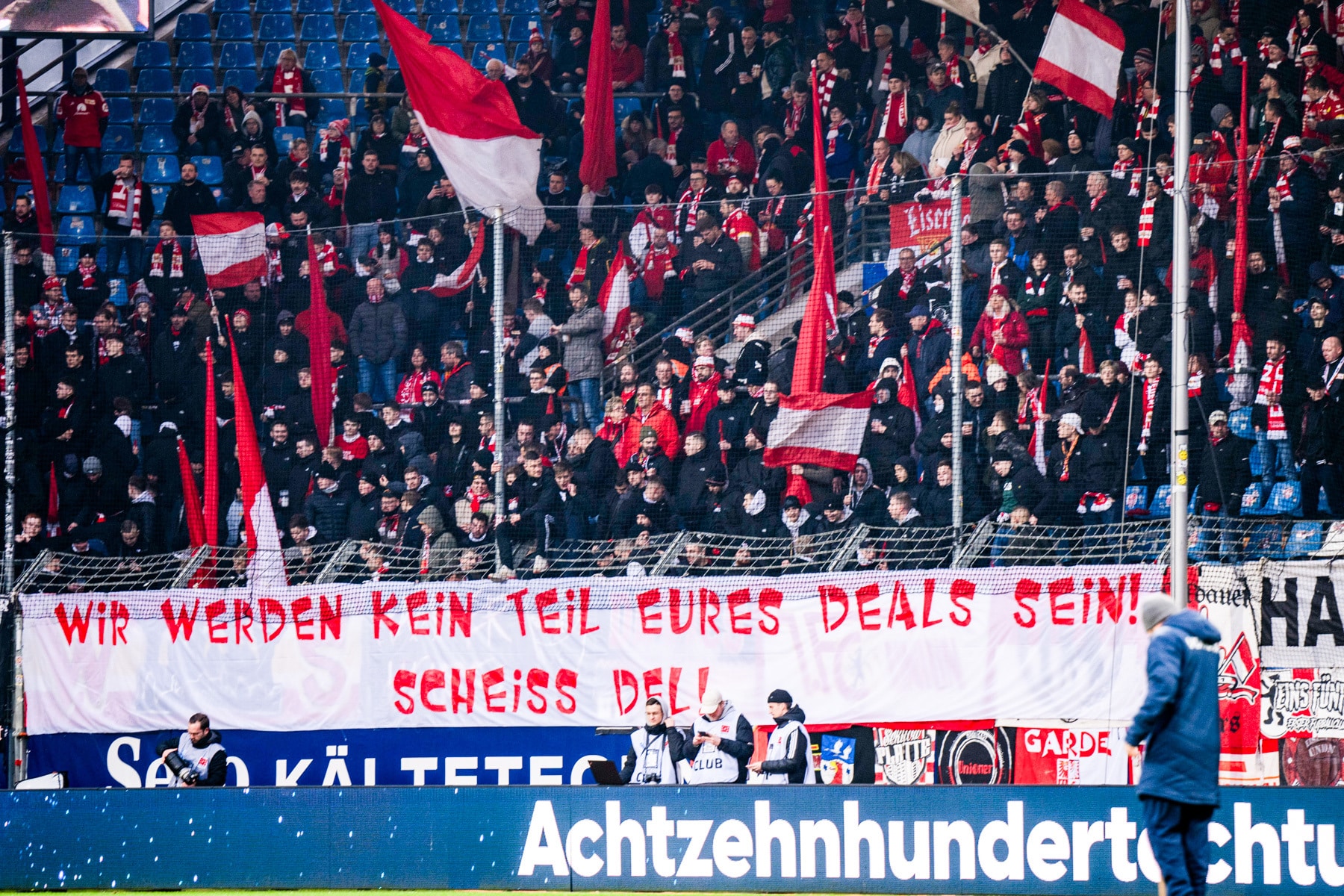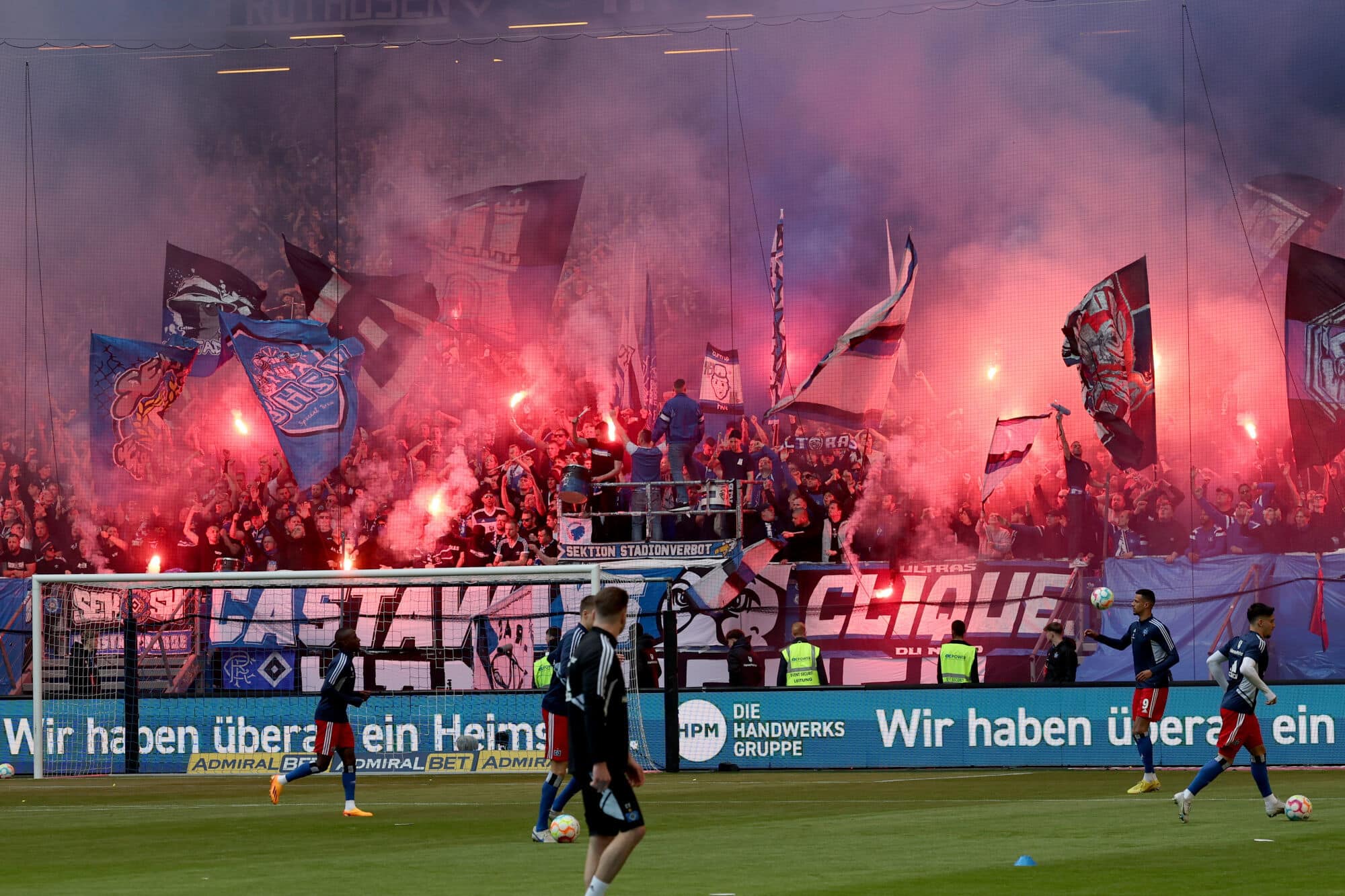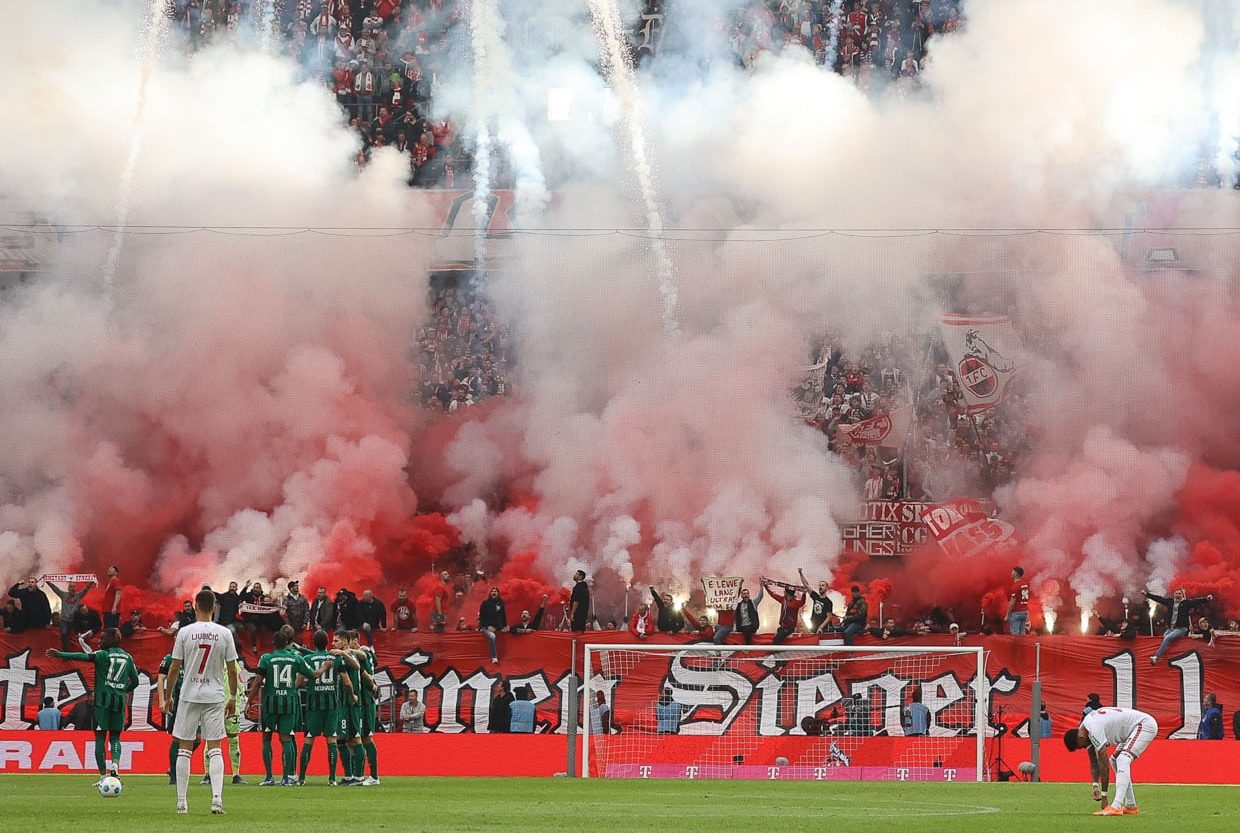It’s been an exciting start to the season in the Bundesliga. Xabi Alonso’s Bayer Leverkusen are riding high at the top of the table. Last season’s surprise package Union Berlin went on a remarkable 12-match losing streak. Harry Kane became the quickest player in the history of the league to reach 20 Bundesliga goals.
But if you watched any game in Germany’s top two divisions last weekend then you will have noticed something. Protests, ranging from silent to violent, were apparent in every match. But what were the supporters protesting against? Read on to find out.

What are Bundesliga protests about?
Last week, the 36 clubs which make up the Bundesliga and 2. Bundesliga voted in favour of allowing financial investors to buy a stake in the Deutsche Fußball Liga’s (DFL) media rights company. This investment would see a cash injection into the leagues – the DFL is hoping to secure €1 billion straight away – but would come in return for eight per cent of revenue from international TV rights over the next two decades.
This has not been an easy deal to get over the line. In May of this year a similar move was rejected and the details of this latest deal are effectively a watered-down version of the unsuccessful one seen then. Even in its current state, the move only just passed – 24 out of the 36 clubs voted in favour, the exact number needed to satisfy the two-thirds majority needed.
How will German football protests affect games?
This is the first time the DFL has set itself up to do any kind of deal with outside investors, and so supporters are understandably concerned about the ways that dealing with private equity firms may affect the leagues. Many believe that by giving big business a stake in the game, fans will lose control over the leagues and rich investors will be able to steer German football in the way they want it to go in order to maximise profits.
The DFL has given assurances that this will not affect how matchdays play out in Germany – any investors will not own a stake in the DFL, but rather its media rights company, which has not yet been established. This will allow it to improve the international marketing of the Bundesliga and 2. Bundesliga – with potential projects including a streaming service – but would not affect sporting matters like kick off times and days, or the potential for games to be held abroad like in France and Italy.

However, if the Bundesliga’s international revenue does not grow as the clubs who voted in favour hope it will, then there is the chance that many clubs will not be able to afford the eight per cent payments to the investors. This may force them back to negotiating table and put the investors in a much stronger position to start taking greater control of sporting matters.
Something similar has already happened to German clubs like FC Schalke 04 and Hamburger SV which, despite adhering to Germany’s 50+1 model, have had to hand over a lot of power to their wealthy investors. Both clubs have now dropped down to the 2. Bundesliga.
Who is looking to invest in the Bundesliga?
Now that the move to allow outside investment has been passed, four private equity firms are in the picture to invest in the DFL. These are Advent, Blackstone, CVC and EQT. Currently, EQT are the highest bidder, having presented an initial offer of €12.7 billion.
How have Bundesliga supporters been protesting?
Bundesliga and 2. Bundesliga fans have been protesting in a range of ways. Every game across the two leagues saw supporters stay silent for the first 12 minutes of the match, the time period representing the fans’ role as the 12th man. The Bundesliga in particular is known for its raucous atmospheres and fantastic supporter displays, and so fan groups believed this silence would be the best way of attracting attention. Werder Bremen midfielder Leonardo Bittencourt told press that “It was no fun at all, it reminded me of the coronavirus.”

Many supporters also threw chocolate coins onto the pitch, making clear their belief that the clubs were valuing money above all else in making this decision. Former Arsenal striker Takuma Asano even unwrapped and ate one of the coins, later going on to score VfL Bochum’s opening goal in their 3-0 win over Union Berlin.
At Hansa Rostock, protests were more violent, with some supporters throwing pyrotechnics which injured police, and causing an estimated €100,000 worth of damage to the stadium. In SC Freiburg’s 2-0 win over 1. FC Köln, both sets of fans chanted “Scheiß DFL” for several minutes. No prizes for guessing what that means.
What happens next after Bundesliga protests?
These protests, despite their ferocity in some instances, have generally been about voicing displeasure at the outcome of the vote. Given that the 2/3 majority has now been reached, it seems very unlikely that the DFL will go back on their decision.
There is the chance that these protests will scare off any potential investors, who fear that the product may be adversely affected by these sorts of protests. But money talks, and it is far more likely that at least one of the four investors listed above will own the stake they are looking for before too long.
